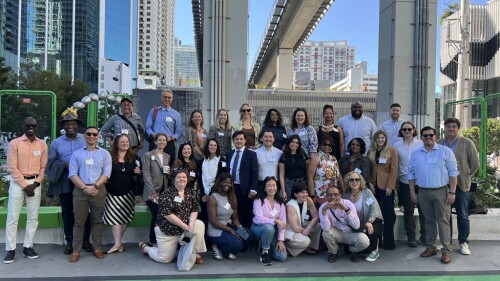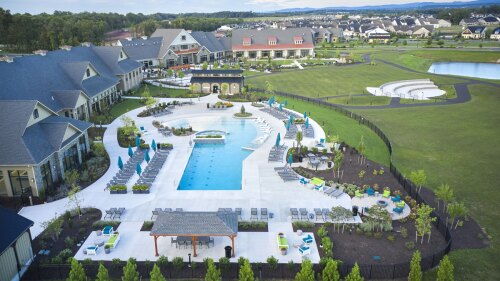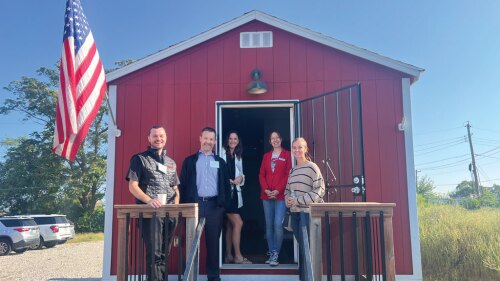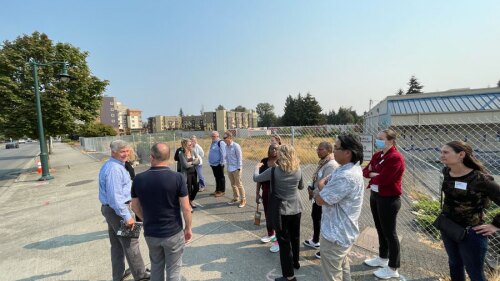Building Healthy Places Initiative
How Hong Kong leverages transit and housing to create a master class in healthy, equitable urban density.
Moving beyond flat-pad suburbs, Terraine embraces Utah’s foothills with contour-responsive homes and mining-town architecture.
A city renowned for its vibrant culture and sweeping coastal skyscrapers, Miami set the stage for this year’s ULI Health Leaders Network Introductory Forum. Spanning the course of three days, Cohort 8 learned from local practitioners and explored the various ways in which the city marries real estate and land use with health and social equity. The Health Leaders toured historical and contemporary neighborhoods, provoking thoughtful discussion on how Miami development compared to their own local contexts.
Amblebrook, an innovative retirement community in the historic setting of Gettysburg, Pennsylvania, was specifically designed to remedy this social disease. It shatters the mold of the conventional 55-plus community.
The Veterans Community Project serves any veteran who took the oath to defend the Constitution, regardless of discharge status, length of service, or branch of service. The program strikes an effective balance between community and individual dignity, employing a robust combination of housing and services. As a result, the program has a high success rate of 85 percent in transitioning unhoused veterans to permanent housing.
Sites in Portland, Oregon, and Seattle, Washington, are home to a painful and complicated history that many neighborhoods in rapidly growing regions are familiar with. To combat the region’s history of racially biased land use and transportation decisions, ULI Northwest joined forces with local leaders to reimagine two sites: one in Tukwila, near Seattle, and the other on the edge of Portland, Oregon.
What is the fastest-growing means of transportation in the United States? The bicycle, according to the U.S. Census Bureau. People bike for many reasons—better health, recreation, transportation, to save money, to run errands. But the biggest reason that bicycling is booming in the United States is the growth in bicycle infrastructure.
ULI Trustee Colleen Carey aims to build a health-focused community in Lyndale Gardens in Richfield, a growing suburb of Minneapolis, Minnesota. Her firm has ambitious plans to build public-facing infrastructure to serve all Richfield residents, not merely the development’s future tenants. These amenities include an amphitheater, walking trails, public plazas and a children’s splash pad, as well as farmers market and community meeting space.
Are you a developer of a master-planned community responding to market demand for walkable and bike-friendly neighborhoods? An architect whose portfolio includes university campuses or mixed-use retail development with millennials in mind? A property manager tasked with ensuring tenant satisfaction and long-term leases? If so, then ULI’s new Building Healthy Places Toolkit has a wealth of ideas for you.













